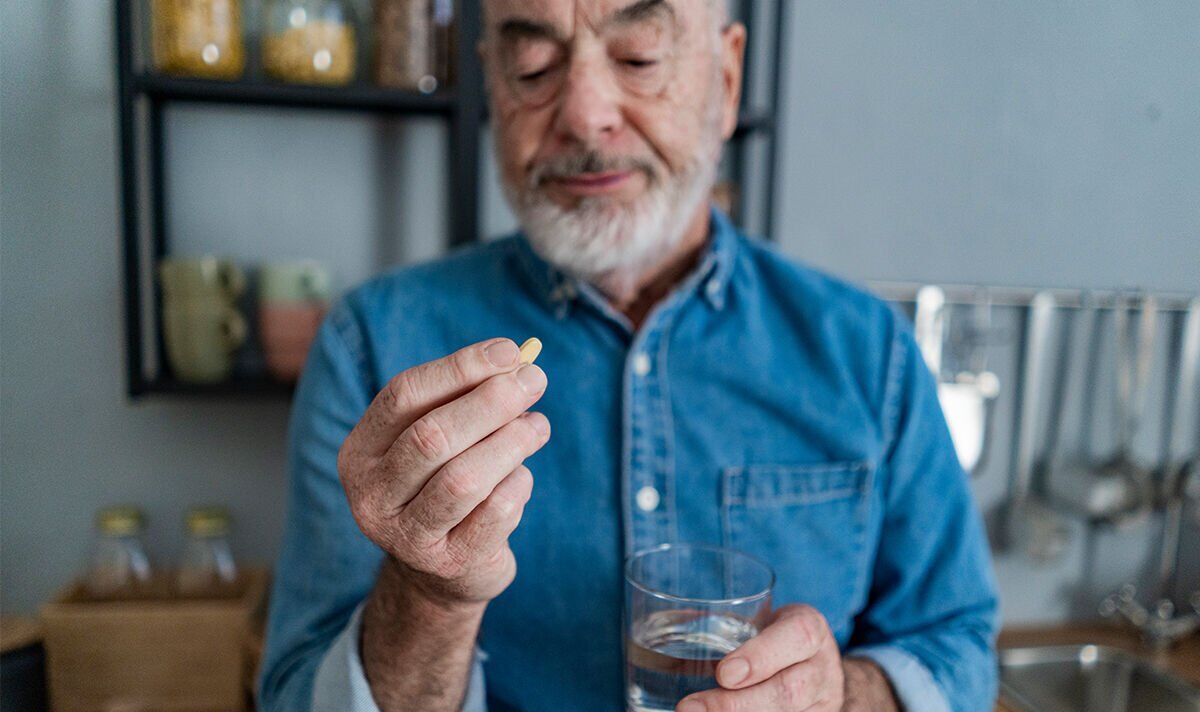Loose Women: Dr Hilary discusses how to live longer
We use your sign-up to provide content in ways you’ve consented to and to improve our understanding of you. This may include adverts from us and 3rd parties based on our understanding. You can unsubscribe at any time. More info
While none of us can be sure how long we will live there are some lifestyle habits we can adopt to help our bodies stay fit and healthy for longer. And although contracting or developing certain diseases and medical conditions are often beyond our control there are also ways to minimise said risk. A new study has shown slowing the ageing process to be possible with the help of an existing anti-inflammatory drug.
Researchers from Columbia University in New York believe the drug could rejuvenate the system which makes blood.
This in turn has the potential to increase the human lifespan by decades.
The study, published in Nature Cell Biology, discovered that the drug anakinra – which is sold under the brand name Kineret and used by rhematoid arthritis patients – can turn back time in mice and reverse some of the effects of age on the hematopoietic system.
The hematopoietic system is the system responsible for creating blood cells, found in bone marrow.

In a university release one of the study’s authors and director of the Columbia Stem Cell Initiative, Emmanuelle Passegué, explained: “An ageing blood system, because it’s a vector for a lot of proteins, cytokines, and cells, has a lot of bad consequences for the organism.
“A 70-year-old with a 40-year-old blood system could have a longer healthspan, if not a longer lifespan.”
Her peer, Carl Mitchell, added: “These results indicate that such strategies hold promise for maintaining healthier blood production in the elderly.”
How does it work?
The team were led to examining this drug after studying the stem cells responsible for creating all the blood in a person’s body. They then analysed where these special cells reside within bone marrow.
During the ageing process, the hematopoietic stem cells also start to change. They produce fewer and fewer red blood cells and immune cells, which can lead to a weakening immune system and blood conditions like anaemia.
Further to this these ageing blood cells can struggle to maintain their genetic structure and this can lead to the onset of blood cancer.
Other attempts at rejuvenating the blood system, through various methods including exercise, diet, and even young blood transfusions, were unsuccessful in experiments with mice.
This led Ms Passegué’s team to look specifically at the bone marrow.

“Blood stem cells live in a niche (a microenvironment of bone marrow); we thought what happens in this specialised local environment could be a big part of the problem,” Mr Mitchell said.
The new study notes that among ageing mice that the environment where the blood-producing stem cells live becomes overwhelmed with inflammation and deteriorates.
The team’s results show the damaged bone marrow niche, called IL-1B, was important in driving these ageing features.
But it was found that anakinra is capable of blocking this, and administering the drug returned ageing blood to a younger and healthier state.

Researchers are now looking into whether this could benefit ageing humans instead of using young blood transfusions.
Ms Passegué said: “Treating elderly patients with anti-inflammatory drugs blocking IL-1B function should help with maintaining healthier blood production.
“We know that bone tissue begins to degrade when people are in their 50s. What happens in middle age? Why does the niche fail first?
“Only by having a deep molecular understanding will it be possible to identify approaches that can truly delay ageing.”
Source: Read Full Article
